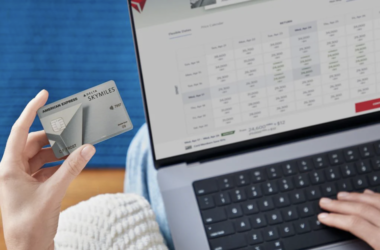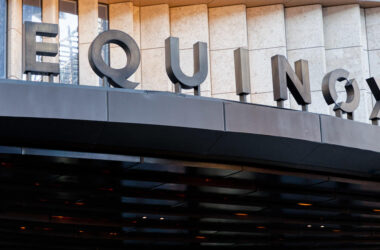U.S. inflation last month reached its lowest point since February 2021, clearing the way for another Federal Reserve rate cut and adding to the stream of encouraging economic data that has emerged in the final weeks of the presidential campaign.
The consumer price index rose 2.4% in September from 12 months earlier, slightly higher than the 2.3% expected, but lower than the 2.5% year-over-year increase in August, according to economists surveyed by FactSet, a data provider. A reading that low, likely reflecting lower gas prices and only a slight rise in food costs, barely exceeds the Fed’s 2% inflation target. A little over two years ago, inflation had reached a peak of 9.1%.
The improving inflation data follows a mostly healthy jobs report released last week, which showed that hiring accelerated in September and that the unemployment rate dropped from 4.2% to 4.1%. The government has also reported that the economy expanded at a solid 3% annual rate in the April-June quarter. And growth likely continued at roughly that pace in the just-completed July-September quarter.
Cooling inflation, steady hiring and solid growth could erode former President Donald Trump’s advantage on the economy in the presidential campaign as measured by public opinion polls. In some surveys, Vice President Kamala Harris has pulled even with Trump on the issue of who would best handle the economy, after Trump had decisively led President Joe Biden on the issue.
“The good news is that the trend remains broadly disinflationary, but the bad news is that services inflation is still a problem,” Olu Sonola, Fitch Ratings head of US Economic Research, said in a note. “Inflation is dying, but not dead.”
At the same time, most voters still give the economy relatively poor marks, mostly because of the cumulative rise in prices over the past three years.
For the Fed, last week’s much-stronger-than-expected jobs report fueled some concern that the economy might not be cooling enough to slow inflation sufficiently. The central bank reduced its key rate by an outsized half-point last month, its first rate cut of any size in four years. The Fed’s policymakers also signaled that they envisioned two additional quarter-point rate cuts in November and December.
Fed lining up more interest rate cuts
In remarks this week, a slew of Fed officials have said they’re still willing to keep cutting their key rate, but at a deliberate pace, a sign any further half-point cuts are unlikely.
The Fed “should not rush to reduce” its benchmark rate “but rather should proceed gradually,” Lorie Logan president of the Federal Reserve’s Dallas branch, said in a speech Wednesday.”
Inflation in the United States and many countries in Europe and Latin America surged in the economic recovery from the pandemic, as COVID closed factories and clogged supply chains. Russia’s invasion of Ukraine worsened energy and food shortages, pushing inflation higher. It peaked at 9.1% in the U.S. in June 2022.
Excluding volatile food and energy costs, so-called core prices likely rose 0.3% from August to September, according to FactSet, and are probably 3.2% above their level a year earlier. Though such a figure would be faster than is consistent with the Fed’s 2% target, economists expect core inflation to cool a bit by year’s end as rental and housing prices grow more slowly.
Economists at Goldman Sachs, for example, project that core inflation will drop to 3% by December 2024. Few analysts expect inflation to surge again unless conflicts in the Middle East worsen dramatically.
Wages rebound
Though higher prices have soured many Americans on the economy, wages and incomes are now rising faster than costs and should make it easier for households to adapt. Last month, the Census Bureau reported that inflation-adjusted median household incomes — the level at which half of households are above and half below — rose 4% in 2023, enough to return incomes back to their pre-pandemic peak.
In response to higher food prices, many consumers have shifted their spending from name brands to private labels or have started shopping more at discount stores. Those changes have put more pressure on packaged foods companies, for example, to slow their price hikes.
This week, PepsiCo reported that its sales volumes fell after it imposed steep price increases on its drinks and snacks.
“The consumer is reassessing patterns,” Ramon Laguarta, CEO of PepsiCo, said Tuesday.



